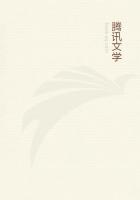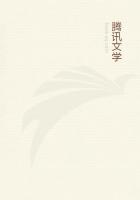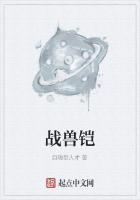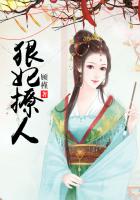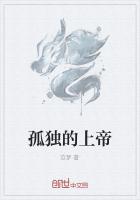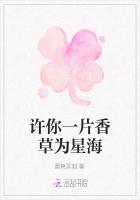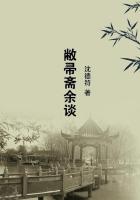Edward Bok, Editor of the "Ladies' Home Journal," writes:
"Nothing finer on the wise education of the child has ever been brought into print. To me this chapter is a perfect classic; it points the way straight for every parent and it should find a place in every home in America where there is a child."
The Education of the Child Goethe showed long ago in his Werther a clear understanding of the significance of individualistic and psychological training, an appreciation which will mark the century of the child. In this work he shows how the future power of will lies hidden in the characteristics of the child, and how along with every fault of the child an uncorrupted germ capable of producing good is enclosed. "Always," he says, "I repeat the golden words of the teacher of mankind, 'if ye do not become as one of these,' and now, good friend, those who are our equals, whom we should look upon as our models, we treat as subjects; they should have no will of their own; do we have none? Where is our prerogative? Does it consist in the fact that we are older and more experienced? Good God of Heaven! Thou seest old and young children, nothing else. And in whom Thou hast more joy, Thy Son announced ages ago. But people believe in Him and do not hear Him--that, too, is an old trouble, and they model their children after themselves." The same criticism might be applied to our present educators, who constantly have on their tongues such words as evolution, individuality, and natural tendencies, but do not heed the new commandments in which they say they believe. They continue to educate as if they believed still in the natural depravity of man, in original sin, which may be bridled, tamed, suppressed, but not changed. The new belief is really equivalent to Goethe's thoughts given above, i.e., that almost every fault is but a hard shell enclosing the germ of virtue. Even men of modern times still follow in education the old rule of medicine, that evil must be driven out by evil, instead of the new method, the system of allowing nature quietly and slowly to help itself, taking care only that the surrounding conditions help the work of nature. This is education.
Neither harsh nor tender parents suspect the truth expressed by Carlyle when he said that the marks of a noble and original temperament are wild, strong emotions, that must be controlled by a discipline as hard as steel. People either strive to root out passions altogether, or they abstain from teaching the child to get them under control.
To suppress the real personality of the child, and to supplant it with another personality continues to be a pedagogical crime common to those who announce loudly that education should only develop the real individual nature of the child.
They are still not convinced that egoism on the part of the child is justified. Just as little are they convinced of the possibility that evil can be changed into good.
Education must be based on the certainty that faults cannot be atoned for, or blotted out, but must always have their consequences. At the same time, there is the other certainty that through progressive evolution, by slow adaptation to the conditions of environment they may be transformed. Only when this stage is reached will education begin to be a science and art. We will then give up all belief in the miraculous effects of sudden interference; we shall act in the psychological sphere in accordance with the principle of the indestructibility of matter. We shall never believe that a characteristic of the soul can be destroyed. There are but two possibilities. Either it can be brought into subjection or it can be raised up to a higher plane.
Madame de Stael's words show much insight when she says that only the people who can play with children are able to educate them. For success in training children the first condition is to become as a child oneself, but this means no assumed childishness, no condescending baby-talk that the child immediately sees through and deeply abhors. What it does mean is to be as entirely and simply taken up with the child as the child himself is absorbed by his life. It means to treat the child as really one's equal, that is, to show him the same consideration, the same kind confidence one shows to an *****.
It means not to influence the child to be what we ourselves desire him to become but to be influenced by the impression of what the child himself is; not to treat the child with deception, or by the exercise of force, but with the seriousness and sincerity proper to his own character.
Somewhere Rousseau says that all education has failed in that nature does not fashion parents as educators nor children for the sake of education. What would happen if we finally succeeded in following the directions of nature, and recognised that the great secret of education lies hidden in the maxim, "do not educate"?
Not leaving the child in peace is the greatest evil of present-day methods of training children. Education is determined to create a beautiful world externally and internally in which the child can grow. To let him move about freely in this world until he comes into contact with the permanent boundaries of another's right will be the end of the education of the future. Only then will adults really obtain a deep insight into the souls of children, now an almost inaccessible kingdom. For it is a natural instinct of self-preservation which causes the child to bar the educator from his innermost nature. There is the person who asks rude questions; for example, what is the child thinking about? a question which almost invariably is answered with a black or a white lie. The child must protect himself from an educator who would master his thoughts and inclinations, or rudely handle them, who without consideration betrays or makes ridiculous his most sacred feelings, who exposes faults or praises characteristics before strangers, or even uses an open-hearted, confidential confession as an occasion for reproof at another time.

